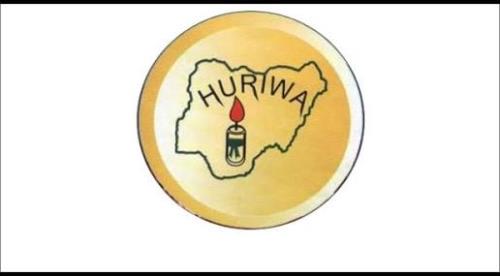Why Kenya-UAE economic deal could be disastrous for Kenya's health sector

On January 14, President William Ruto and UAE President Sheikh Mohamed bin Zayed Al Nahyan signed the Kenya-United Arab Emirates Comprehensive Economic Partnership Agreement (CEPA), touted as the UAE’s first such deal with a mainland African country.
Kenya’s Ministry of Foreign Affairs termed it a “transformative step in enhancing trade, investment, and economic cooperation.”
But as with most trade deals, experts will tell you the devil is in the details.
Unlike conventional trade agreements that reduce tariffs and open markets, the Kenya-UAE CEPA lacks clear provisions on market access. Without tariff dismantling, Kenya could still trade with the UAE under existing World Trade Organization (WTO) rules, raising questions about what the country gains in return for its concessions.
Putting aside all the implications for the agreement, one must home in on the potential impact the trade agreement has on the health sector. Consider the country’s burden of HIV/AIDS, tuberculosis, and cancer, diseases that already strain national resources.
According to the National AIDS and STI Control Programme, more than 1.4 million people live with HIV/AIDS. About 18,000 die annually from HIV-related complications, and 1.2 million people are on antiretroviral therapy, accounting for about 86 percent of those living with the virus. This, at a time when the US has significantly scaled down support through the President’s Emergency Plan for AIDS Relief (PEPFAR), previously administered by United States Agency for International Development (USAID).
Kenya also reports about 133,000 tuberculosis infections annually, with 90,841 cases documented in 2022, a 68 percent detection rate. Around 1,200 cases are drug-resistant, and TB-HIV co-infection rates stand at 20 percent. That year alone, 12,000 people died from TB.
Cancer statistics are equally grim. The Kenya National Cancer Registry estimates 42,000 new cancer cases and 27,000 deaths annually.
Treatment costs are not cheap. Generic chemotherapy drugs like doxorubicin and paclitaxel range between Sh5,000 and Sh30,000 per dose. Branded or targeted therapies such as Herceptin, Trastuzumab, and Pembrolizumab can cost between Sh100,000 and Sh500,000 per dose, with some immunotherapies exceeding Sh1 million. Hormonal therapies like tamoxifen and letrozole cost Sh500 to Sh10,000 per month. Pain management drugs such as morphine and anti-nausea medications add another Sh200 to Sh10,000 monthly.
To ease this burden, the Kenyan government has subsidised some essential medicines. However, these subsidies may not be sustainable under a tough fiscal consolidation program imposed by the International Monetary Fund (IMF). Coupled with the PEPFAR cuts, the country’s healthcare financing faces unprecedented pressure, even before accounting for CEPA’s potential damage.
Alarmingly, the Kenya-UAE CEPA contains provisions for market exclusivity and linkage, two clauses that could significantly raise drug prices and restrict access.
I am shocked to see that this Kenya-UAE CEPA has included clauses that entail obligations for market exclusivity and linkage. In simple terms, market exclusivity places an obligation for market exclusivity for a period of five years for a particular medicine from the latest possible date for both the information in the dossier and the fact of the marketing approval. That means older drugs like insulin, which are off-patent, could still be locked out of the market, preventing affordable generics from reaching patients.
Linkage provisions tie drug approval to patent status, potentially overriding compulsory licenses, a WTO-sanctioned mechanism that allows governments to authorize generic production of patented drugs during public health emergencies, without the patent holder’s consent.
In contrast, India rejected these clauses in its 2022 CEPA with the UAE, prioritizing public health over pharmaceutical monopolies.
Stay informed. Subscribe to our newsletter
Global examples show the real cost of such provisions. In Colombia, data exclusivity laws introduced in 2002 were projected to cost the public health system an additional USD396 million between 2003 and 2022. In the US, colchicine, a drug used to treat gout, was granted three years of exclusivity for a new indication. Existing generics were pulled from the market, and prices skyrocketed more than 50-fold, adding USD50 million annually to healthcare costs.
Kenya risks a similar fate if CEPA is ratified in its current form.
Fortunately, the 2010 Constitution provides safeguards. Article 21 mandates the State to observe, respect, protect, promote, and fulfill the rights and fundamental freedoms enshrined in the Bill of Rights, including the right to health.
Because all treaties require parliamentary ratification, it is now up to lawmakers to uphold the Constitution and protect Kenyans from harmful trade obligations.
The Parliamentary Caucus on Business and the Economy has previously demonstrated its resolve during controversial treaty reviews, most notably during the Kenya-UK Economic Partnership Agreement debate. The caucus successfully pushed for amendments to parliamentary standing orders to empower the legislature in treaty ratification processes, especially in the face of weak oversight under the current Treaty-Making and Ratification Act.
With these provisions, Parliament can either approve the CEPA, ratify it with reservations, or reject it outright.
It is imperative that lawmakers propose clear reservations, specifically, the removal of clauses that go beyond the WTO’s TRIPS agreement and the inclusion of a meaningful market access chapter. Parliament must act in the interest of public health.
Over to parliament.










